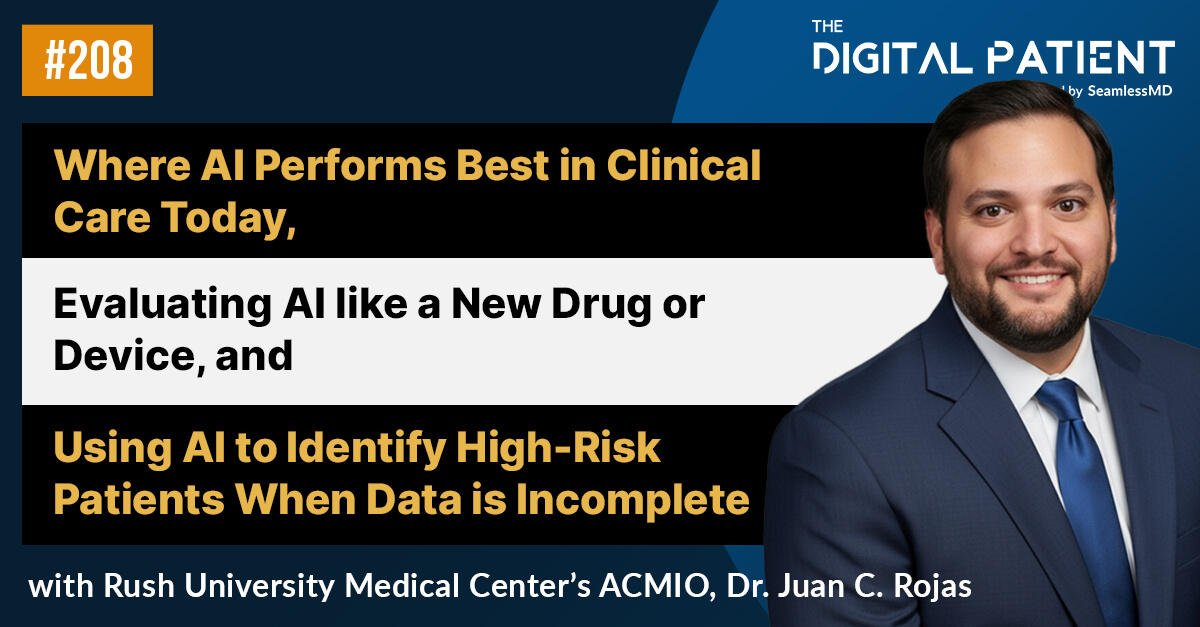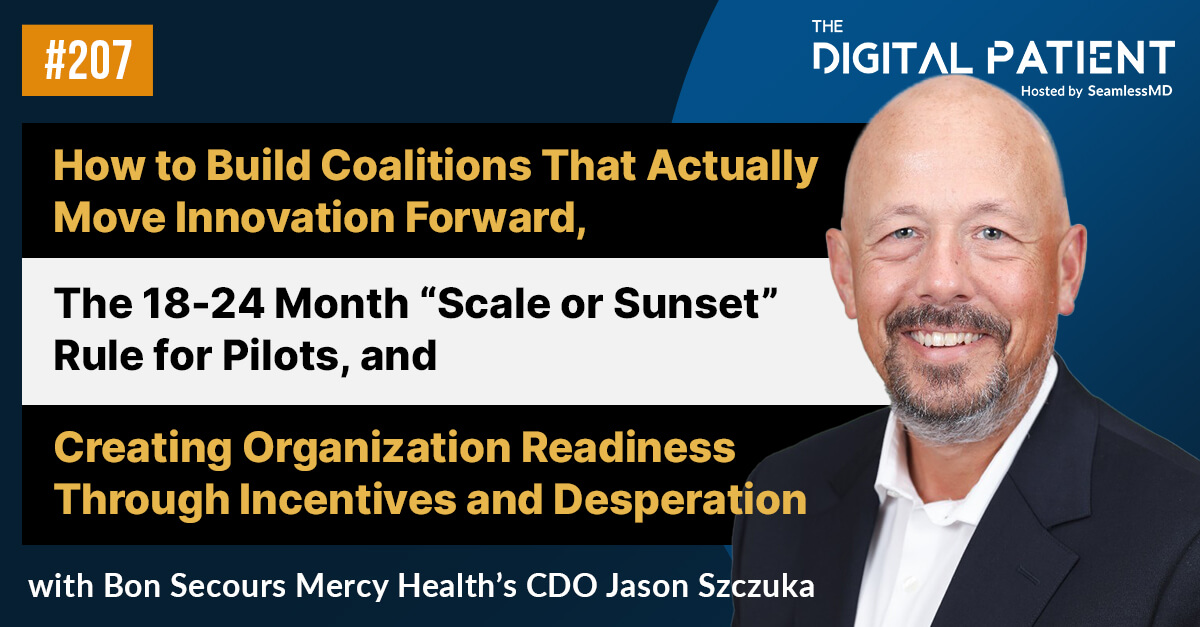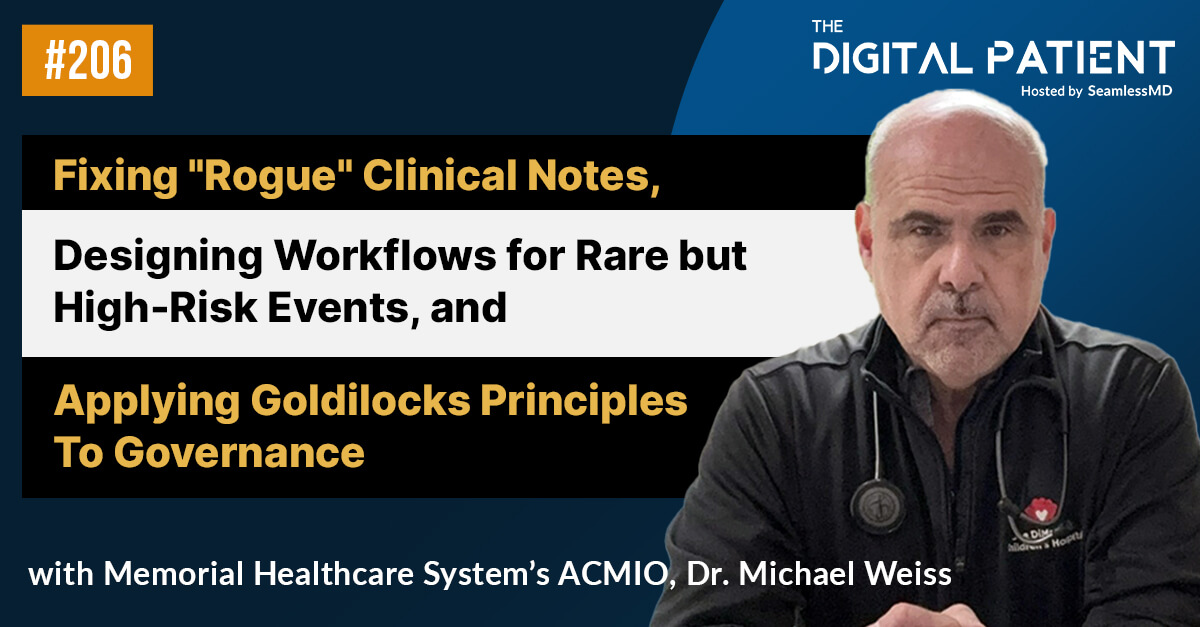Subscribe on: | | | | |
Video:
In this episode of the ░Ą═°╩ėŲĄ Podcast, Dr. Joshua Liu, Co-founder & CEO at ░Ą═°╩ėŲĄ, and marketing colleague, Alan Sardana, chat with Dietician and Patient Education Specialist, Ms. Daniela Faykoo-Martinez RD, MHSc, about Using Digital Patient Engagement for Colorectal Surgery. See the full show notes below for details.
Guest(s): Ms. Daniela Faykoo-Martinez, Patient Education Specialist at ░Ą═°╩ėŲĄ
Dr. Joshua Liu (), Co-founder & CEO at ░Ą═°╩ėŲĄ
Episode 13 ŌĆō Show notes:
[00:00] Introducing Dietician & Patient Education Specialist, Daniela Faykoo Martinez, RD, MHSc;
[01:35] Why Ms. Faykoo-Martinez went into health-tech so she could empower patients and make an impact at scale;
[02:30] Why the clinical teams at ░Ą═°╩ėŲĄ interviews patients whoŌĆÖve undergone colorectal surgery to determine important topics, concerns, and challenges to cover on the platform;
[02:45] How colorectal surgery patients have common concerns and challenges around fear of anesthesia, medications, and G.I. issues such as constipation, diarrhea, hydration, nausea, etc. and how Ms. Faykoo-Martinez incorporates specific self-empowerment education, reminders, and symptom trackers for patients to better navigate these challenges;
[04:30] Ms. Faykoo-Martinez defines a ░Ą═°╩ėŲĄ ŌĆ£Health CheckŌĆØ as a dynamic symptom-tracking survey that gives specific recommendations based on patient input (for e.g. determining dehydration based on signs such as dry lips, dark urine, etc.);
[06:16] How ░Ą═°╩ėŲĄ has threshold-algorithms to provide personalized care for patients (for e.g. If a patient has been constipated for 1 day, they get education to self-manage, whereas a patient whoŌĆÖs constipated for 5 days would get a specific phone number to call the clinical team);
[09:55] How ░Ą═°╩ėŲĄ uses ŌĆ£branching logicŌĆØ to provide personalized care for Colostomy vs Ileostomy patients and why Ms. Faykoo-Martinez has Ileostomy patients measure ostomy output and describe consistency since ileostomy patients are at higher risk of dehydration;
[11:30] Why Ms. Faykoo-Martinez includes questions around mental health in the program to help patients reflect on their progress and to give personalized tips such as support groups for any depression or anxiety the patient might experience;
[13:07] How patients on ░Ą═°╩ėŲĄ have expressed feeling more in control and having less anxiety due to having the right information at the right time;
[14:05] Ms. Faykoo-Martinez explaining how ░Ą═°╩ėŲĄ sends text message reminders and has a to-do list for bowel prep and Enhanced Recovery After Surgery patient protocols;
[15:25] How ░Ą═°╩ėŲĄ includes picture-based step-by-step instructions on most education such as for ostomy patients, ŌĆśhow to remove your pouchŌĆÖ, ŌĆśhow to empty your pouchŌĆÖ, ŌĆśhow to measure outputŌĆÖ etc. and includes often overlooked details such as ŌĆśhow to avoid spilling when changing your pouchŌĆÖ;
[17:17] How patients with a stoma are often overwhelmed and why Ms. Faykoo-Martinez incorporates education to cover little details such as ŌĆśwhat to wearŌĆÖ & ŌĆśsex and intimacyŌĆÖ to help with patient confidence;
[18:10] How ░Ą═°╩ėŲĄ educates patients before surgery on Enhanced Recovery After Surgery protocols, reminds patients to do the protocols (at the right time), and tracks patient compliance and reasons for non-compliance with ERAS protocols such as carb-loading, antibacterial wash, etc.;
[19:21] Why clinical teams often introduce new protocols during ░Ą═°╩ėŲĄ implementation because the implementation is an opportunity for the clinical teams to collaborate and agree on the standardized protocols given to patients;
[21:43] Ms. Faykoo-MartinezŌĆÖs thoughts on how ░Ą═°╩ėŲĄ could improve by adding additional videos to the education library and by creating a ░Ą═°╩ėŲĄ-hosted online support network for colorectal patients;
[22:55] Ms. Faykoo-Martinez shares colorectal surgery patient feedback from ░Ą═°╩ėŲĄ including patients feeling connected to the healthcare team, feeling confident and in control, and avoiding phone calls for common post-discharge colorectal questions;
[24:40] Fast 5 / Lightning Round Questions:
Q: What is your favourite book?
A: I love recipe books. My favourite is called ŌĆ£Pasta & OperaŌĆØ by Antonio Carluccio (teaches you how to make pasta from scratch)
Q: What is your favourite food?
A: Cheese! Specifically, gruyere (in the Swiss Alps)
Q: Who is a person, dead or alive, youŌĆÖd like to meet?
A: Chris Burkard - travel and adventure-based photographer and artist
Q: Where is your favourite travel destination?
A: Patagonia - the culture, the food, the air, the glacier water!
Q: What new hobbies/activities/skills have you picked up since COVID-19?
A: Gardening! (orŌĆ” killing plants ¤śÆ)
.svg)





